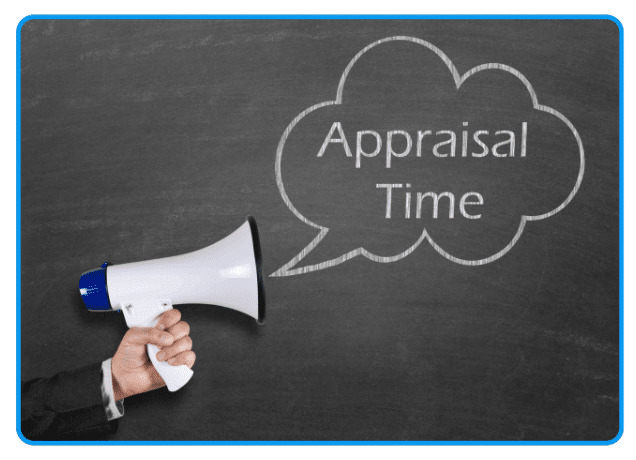Published: October 2024
Is PMI Based on Appraised Value?
Buyers often want to know, “Is PMI based on appraised value?” The answer is, not necessarily. The Private Mortgage Insurance (PMI) calculation depends on the purchase price and the appraisal. The guideline is that PMI is based on the lesser of these amounts.
Let’s compare two similar examples:
- A home has a purchase price of $300,000 and the appraised value is $310,000. Here, PMI will be based on the lower purchase price.
- A home has a purchase price of $300,000 and the appraised value is $290,000. Here, PMI will be based on the lower appraisal value.

How Is PMI Affected by Appraisal?
An accurate home appraisal is essential for mortgage approval and determining the loan amount a bank is willing to offer. If you are unable to provide a 20% down payment, you will be required to obtain private mortgage insurance (PMI). PMI does not offer any benefits to you; instead, it safeguards the lender in the event that you default on the loan.
Without a good appraisal, you won’t be granted a home loan, never mind having it extended to make up any shortfall in your deposit. To get PMI, your appraisal must be close to or better than the purchase price. Even a good credit score can’t help you if the purchase price is too high! Want to learn what can hurt a home appraisal to stay ahead of the curve? You can read more here.

Who Is The Provider of PMI?
A lender organizes PMI directly with their provider of choice, so your PMI depends on which company your bank chooses. You don’t have a say in this and the PMI is added directly to your loan, with its premium built into your repayment schedule.
Currently, there are only seven U.S. mortgage insurers that protect lenders across the country. These companies operate nationwide and even internationally. Some are based in Bermuda. The mortgage insurers are Arch Capital Group, Essent Guaranty, Genworth Financial, The Mortgage Guaranty Insurance Company (MGIC), National Mortgage Insurance, Old Republic International, and Radian Guaranty Inc. You can learn more about PMI Providers here.
How Much Does PMI Cost?
The average cost of PMI is 0.22% to 2.25% of your mortgage amount, depending on your credit score. This can substantially increase the number of your repayments. For example, if you have a loan of $250,000, then you would pay a PMI of $550 to $5,625 annually, or $45.83 to $468.75 monthly.
You can pay the full cost of PMI when you close on the loan. This adds to the closing cost, but your monthly mortgage repayment will be lower. You can also opt to pay part upfront and smaller monthly payments thereafter.
Estimate Value Through an Appraisal
If you’re applying for a mortgage loan, your lender will require you to get a home appraisal. You need this to determine a fair price and calculate PMI if you don’t put 20% equity into the property by way of a deposit. The average fee can range from $400-$500 on a typical home (depending on the square footage and details of the home).
You can find various appraisal calculators online. These automated valuation models (AVMs) may give you a ballpark figure of the property’s value but are not entirely reliable. It’s much better to perform the following 5- step calculations:
- Calculate the cost-per-square-foot: Divide each comp’s selling price by the size of the property.
- Estimate your home’s value: Add all costs-per-square-foot, then divide this sum by the number of comps. Multiply your home’s square footage by this number.
- Find the range: Calculate 10% less and more to get your estimated home value appraisal range.
- Estimate your PMI: Ask your lender what your PMI percentage is and multiply this by the property value.
Determine the Loan-to-Value Ratio (LTV)
LTV is a financial ratio that compares the amount of money borrowed to the market price of the property purchased. It assesses the risk that the lender takes in granting you a mortgage. If you put down a 20% deposit, then the amount of money you borrow is 80% of the purchase price. This is the cutoff LTV for avoiding PMI. Any smaller down payment will result in an LTV higher than 80%. To calculate your LTV, take your current loan balance and divide it by the current appraised value. Multiply this number by 100 to convert it to a percentage and round it up to the nearest whole number.
The smaller your deposit, the higher your LTV and the lower your credit score, the greater the risk associated with your loan. This means that you’ll have to pay a higher PMI. This has pros and cons, as follows:
Pros of PMI:
- A smaller deposit is required to buy a home.
- Access to financing due to the lender’s risk being insured.
- Improve your credit score with on-time monthly payments.
Cons of PMI:
- Higher monthly repayments.
- Doesn’t add equity to the property.
- Can only be canceled once you’ve built up at least 20% equity.
Conventional Loans with No PMI

The criteria for conventional or conforming loans are set by Fannie Mae and Freddie Mac. These two large companies together make up the government-sponsored enterprises (GSEs) that guarantee most mortgages in the U.S. They buy mortgages from lenders and then sell them on to investors. In this way, lenders free up their funds so that they can offer more loans to qualified buyers.
Conventional loans where you aren’t required to pay PMI offer better interest rates and repayment terms. This kind of financing usually requires a 20% deposit, a healthy credit score of at least 620, plus a debt-to-income ratio (DTI) smaller than 50%. A final requirement is that the amount of money you wish to borrow must fall within the annual loan limits set by Fannie Mae and Freddie Mac. For most states, the single-family baseline loan limit for one unit is $726,200 for 2023.
Key Takeaways
When buying a home, all the calculations and requirements can be quite complex and confusing. People often ask three common questions when contemplating PMI. These are: “Is PMI based on appraised value?”, “Is PMI based on the loan amount or appraisal?”, or “Is PMI based on the purchase price or appraised value?” As explained in this article, PMI is always based on the lower purchase price or appraisal.
As a prospective homebuyer, you should gather as much information as possible to make smart decisions. Take the time to understand terms, such as PMI and LTV.
If you need help, find trustworthy experts who will offer sound advice and guide you through the home valuation process.
Triangle Appraisal Group’s licensed and FHA Certified appraisers proudly serve the Triangle, Triad Region, Fayetteville, Sanford, Pinehurst, and Eastern North Carolina. TAG us in!
For more information on PMI in NC, visit the NC Department of Justice.

Peter Bimonte
Extremely flexible…On time, thorough and knowledgeable…I would recommend them for your next home appraisal without hesitation…5 Stars!
Peter Bimonte

Duwayne Evans
I can’t explain how thankful I am to have a such a wonderful appraisal company at my fingertips. They’re very professional and have fast response times.
Duwayne Evans

Maurice Ellis
I’m very pleased with the way Triangle Appraisal Group conducted business me Kevin was very professional explaining the process and walking me through everything
GREAT JOB. THANKS
Maurice Ellis

D
In working Vicki and Amber, we were extremely pleased with not only how quickly our home + property appraisal was scheduled, but with how professionally the entire process was completed. And, it only took 2 business days for the appraisal to be created and sent to us.
I would highly recommend Triangle Appraisal Group to anyone seeking an experienced team for this service!
D

Stephanie Howard
From the minute, I called Triangle Appraisers to the day I received the appraisal report, I was extremely impressed! Vickie responded immediately to every question or request. This was the easiest most efficient transaction I have had with a business in years! I highly recommend this firm for any of your real estate needs!
Stephanie Howard

Alexandra Saywell-Wade
Triangle Apprasial Group was amazing to work with . They’re so knowledgeable of the housing Apprasial process, housing market. They are quick to reach out to you and have great customer service , punctual and give you a very Detailed report. I recommend them to anyone who needs an appraisal.
Alexandra Saywell-Wade

William Reid
This company was very prompt in answering my online request. Their evaluator was very respectful of our property. Very professional from start to end.
William Reid

Alyssa Baker
TAG has been so helpful and friendly ever step of the way. The appraiser was prompt and courteous. I would absolutely recommend!
Alyssa Baker

Deborah Jordan
They are professional putting the needs of customer first. Taking the time to listen, help you work through struggles. They also work in a timely manner. This is the best deal for meeting your needs. I am a valued customer.
Deborah Jordan

May Love
Outstanding appraisal experience. Expertise and timeliness exceeded expectations. Incredibly accommodating appraiser! Went the extra mile for my rent analysis as well. Impressive service. Thank you Matthew, Vicki and TAG!
May Love
FAQs
PMI is generally based on the lower of the purchase price or the appraised value of the home. This ensures that the mortgage insurance covers the amount of the loan that exceeds 80% of the property’s actual worth.
If the appraisal is lower than the purchase price, PMI will be higher because it will be based on the appraised value, which is seen as the true market value of the home. If the appraisal is higher, it doesn’t typically benefit the PMI calculation but might influence refinancing options or future real estate transactions.
The lender typically chooses the PMI provider based on their own criteria and business relationships. As a borrower, you generally do not have the option to select or change the PMI provider after the loan agreement is finalized.
The cost of PMI is influenced by several factors including the loan-to-value ratio (LTV), your credit score, the loan amount, the type of property, and the amount of coverage required by the lender.
Yes, PMI can be removed once you build up at least 20% equity in your home based on the original property value or a new appraisal. You typically need to request PMI cancellation in writing and meet other lender-specific criteria, including a good payment history.
Paying PMI upfront can reduce your monthly mortgage payments, which might help make your monthly financial planning more predictable and potentially save on the total interest paid over the life of the loan.


